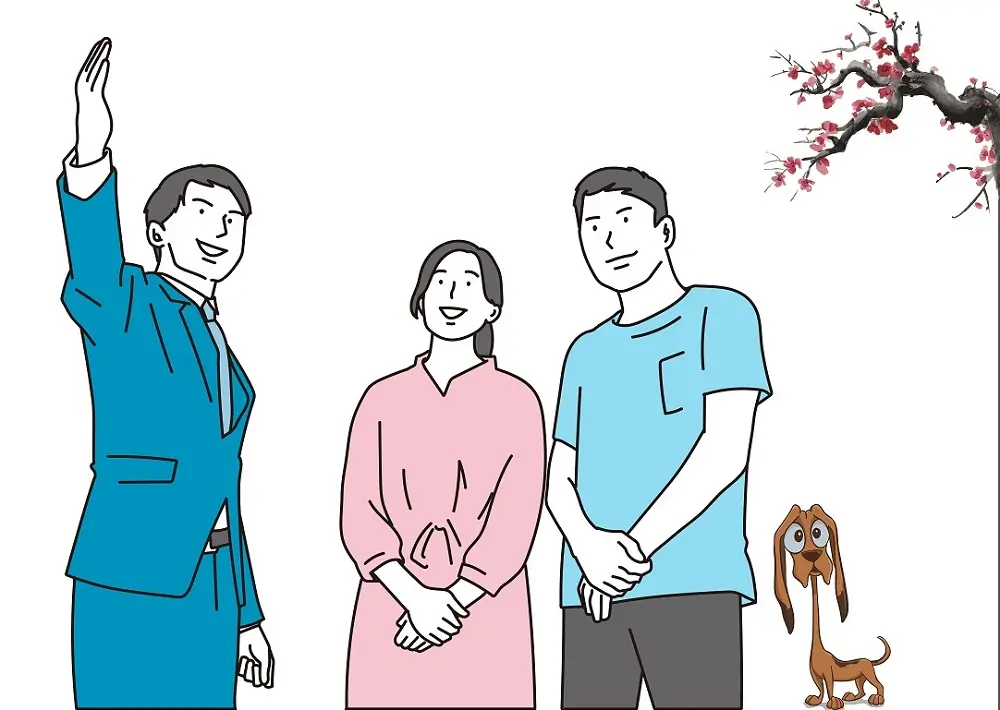How to Choose Your Neighborhood in Japan: Location, Facilities, Noise, and More

Once you’ve decided on your new Japanese city, the next step to setting up a stable life in Japan is to discover a neighborhood that meets your needs.
Thankfully, most Japanese neighborhoods are self-contained mini-towns bursting with activity and local businesses.
However, in such a densely packed country, noise pollution and privacy will naturally be an issue no matter where you are, making it vital to discern the character of a neighborhood and street before making commitments.
As a general guide for newcomers to Japan or those considering moving, we’ve listed some elements to consider when checking out a potential neighborhood before renting an apartment in Japan.
Once you’ve decided on your desired neighborhood, begin house hunting with this image in mind to help you decide. Remember, no matter how good the property is, the quality of its surroundings will make or break it!
Facilities and Shops
Streets in Japan are dotted with convenience stores, post boxes, supermarkets, and more, making it a very convenient country to live in, even without a car.
When checking out a potential property, locate the closest convenience store and supermarket and see how long it’ll take to walk there and back. If it’s too far, consider another property unless you own a car or bike.
On the other hand, living too close to a convenience store can lead to increased noise pollution, mainly as some use convenience store car parks to take lunch or relax.
Furthermore, Japanese people tend to leave their cars idling, which creates an irritating, droning noise that can seep into your home.
In addition, supermarkets and convenience stores receive late-night or early-morning deliveries, leading to additional clatter. Ideally, you’d want to live roughly 5-10 minutes on foot away from a convenience store/supermarket. While at it, watch for local post boxes, drug stores, parks, benches, libraries, cafes, gyms, and other public and private facilities.
Train Stations/Bus Stops
While there’s bound to be a train station/bus stop nearby, it may be next to useless depending on the line it’s connected to. Check online to view the line/route and see if you can use it to get to the places you regularly visit, such as your workplace or favorite shopping center.
Also, check out the size of the station. If it’s small, it may be skipped by rapid/express trains, resulting in less service.
Like the convenience store/supermarkets above, you’d ideally want to live between 5-15 minutes on foot from a station. Living too close will mean dealing with noise, which includes any nearby train tracks.
Before deciding your place of stay, spend 15-20 minutes at the property and listen to any train noises. Of course, as trains do not run late in Japan, you won’t have to worry past midnight. However, they will start up again at around 5:00 a.m.
Terrain
Being the land of mountains, life in Japan is rarely spent on flat ground. Even on the Kanto plain, thousands of hills and small mountains will make riding a bike impossible and walking strenuous.
In addition, steep mountains and cliffs can collapse or lead to mudslides, particularly during the rainy season. In the same vein, living too close to a river or by the ocean exposes you to the risk of flooding or tsunamis.
Unfortunately, avoiding rivers, coastlines, and mountains in Japan is challenging, especially in remote places, so don’t be upset if you end up nearby. Just keep an eye on the weather/news and be prepared to evacuate at any time.
While searching, find out the property’s height above sea level from the real estate agent. If it’s low and near water, it’ll be prone to flooding, so it’s best to look elsewhere.
While you’re there, see how quickly you can get to the closest high place, such as a tall building or hill, along with the nearest evacuation center in case of disaster.
Schools in the Neighborhood
Whether you have children or not, the location of schools will undoubtedly factor into your Japanese house hunting. So naturally, having children near their school will make daily family life super convenient.
However, most tend to select schools based on reputation and a child’s needs rather than proximity, so this may not be an essential factor. Nevertheless, if you send your children to the closest school, being too close to it will bring a constant stream of daytime noise and foot traffic (even on weekends), so be careful.
As a foreigner, you might want the kids to go to International Schools to get an education in English. Your choice will further be thinned out to a great extent. Please check international schools’ locations and bus routes before deciding on the accommodation.
Noise
Noise pollution can make even the best property a living hell. With loads of construction work in Japan, densely packed apartments, nearby parks, schools, roads, and more, avoiding noise altogether is next to impossible.
However, if you value peace and tranquility, aside from escaping into the deep countryside, take note of and try to avoid properties next to or near the following:
- Schools, kindergartens, pre-schools, etc.
- School walking routes
- Public or private car parks (construction workers will also borrow these to work on)
- Parks/town squares/general public meeting areas
- Trash collection points
- Shops/convenience stores
- Construction sites (inquire at the local city hall about any future planned jobs)
- Large apartment buildings (unless you’re in one)
- Busy roads and highways (noise from bypasses and highways can travel surprisingly far)
- Train lines/train stations/bus stops/bus routes
- Factories/warehouses/workshops
- Pachinko (particularly noisy and with an unwholesome character)
- Shotengai shopping arcades
- Hankagai shopping/business districts
- Red-light districts
- Restaurants/izakaya/bars
If you’re particularly sensitive to surrounding noise, opting for a modern high-rise-style apartment building (known as a mansion in Japanese) with soundproof walls and windows would be advisable.
Such places will also have a management system where you can make noise complaints. On the other hand, street-level apartment-style (apāto) housing can be particularly noisy and thin-walled, making them largely ill-suited for noise-sensitive individuals.
Conclusion for Choosing Your Neighborhood in Japan
No size fits all! This statement is true when you choose a neighborhood that suits your needs to live in Japan.
We all have to make some compromises to meet some of our needs. Choosing the best place to live depends on our preferences and actual needs. Some of us like to live downtown, and the noise pollution does not bother us, while some wish for tranquility and greenery at the cost of some conveniences. Some may have school-going kids, while some are bachelors. All these situations change our needs and where we should aim to live.
This article mentions some bare facts, and I hope this serves as a guide for you to weigh various factors according to your preferences and needs to choose the best place to live in Japan.


Born in Melbourne, Australia, Steven came to Japan as an English teacher and currently works as a writer in Niigata City. Bilingual with fluent Japanese language, Steven loves relishing local sake, reading anime, and traveling.

